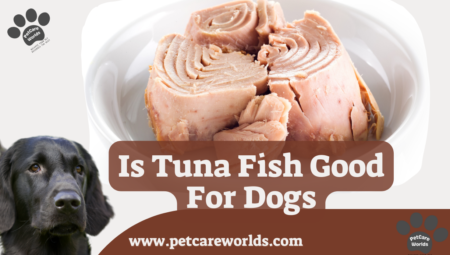Can dogs have marshmallows? It’s a question that might cross your mind when your furry friend gazes longingly at your sweet treat. While marshmallows seem harmless and fun, they can hide ingredients that are dangerous for dogs, like sugar or the highly toxic xylitol. But is every marshmallow bad, or are there exceptions? Let’s uncover the truth before your pup sneaks a sugary bite!
Can Dogs Have Marshmallows?
Dogs should not eat marshmallows, especially those with harmful ingredients. Most marshmallows are loaded with sugar, which can lead to weight gain, diabetes, and other health issues. Some even contain xylitol, an artificial sweetener that is highly toxic to dogs. Can Dogs Have Marshmallows
Here’s why marshmallows can be risky:
- Xylitol poisoning: Causes low blood sugar, seizures, or liver damage.
- High sugar content: Leads to obesity and dental problems.
- Choking hazard: Their sticky texture can be dangerous for smaller dogs.
If you want to treat your dog, it’s best to avoid marshmallows altogether. Instead, opt for dog-safe snacks like plain carrot sticks or apple slices. Can Dogs Have Marshmallows
Why Are Marshmallows Bad for Dogs?
Marshmallows may seem harmless, but they can be dangerous for dogs. Here’s why:
- High Sugar Levels: Most marshmallows are packed with sugar, which can cause obesity, diabetes, and dental issues.
- Artificial Sweeteners: Some contain xylitol, a sweetener that is extremely toxic to dogs, even in small amounts.
- Digestive Problems: Dogs may experience stomach upset, vomiting, or diarrhea after eating marshmallows.
- Choking Hazard: Their sticky texture can get lodged in a dog’s throat, especially in smaller breeds.
Even if marshmallows don’t contain xylitol, the risks outweigh the benefits. It’s best to stick to dog-friendly treats instead. Can Dogs Have Marshmallows
What’s Inside Marshmallows?
Marshmallows are made up of simple ingredients that aren’t dog-friendly. The main components include:
- Sugar: A primary ingredient, often in high amounts.
- Corn Syrup: Adds more sweetness and calories.
- Gelatin: Gives marshmallows their chewy texture.
- Artificial Additives: Includes flavors and food coloring, which can irritate a dog’s system.
- Xylitol: A sugar substitute sometimes used, which is highly toxic to dogs.
These ingredients make marshmallows a poor choice for your furry friend. Can Dogs Have Marshmallows
How Xylitol Affects Dogs
Xylitol is incredibly dangerous for dogs. Even small amounts can cause:
- Rapid Insulin Release: Leads to a sudden drop in blood sugar, or hypoglycemia.
- Liver Damage: Large quantities can cause liver failure, which may be fatal.
- Seizures and Weakness: Common symptoms of xylitol poisoning.
If you suspect xylitol ingestion, contact your vet immediately. Can Dogs Have Marshmallows
Other Ingredients to Watch Out For
Aside from xylitol, other harmful marshmallow ingredients include:
- Artificial Sweeteners: Some may upset a dog’s digestive system.
- Preservatives: Can trigger allergies or sensitivities.
- High Sugar Content: Even without xylitol, too much sugar is harmful.
Always check labels carefully and keep these risks in mind. Can Dogs Have Marshmallows
How Sugar Affects Dogs
Sugar is as bad for dogs as it is for humans—if not worse. It impacts dogs in several ways:
Short-Term Risks of Sugar
- Hyperactivity: Dogs may experience bursts of energy, followed by a crash.
- Digestive Issues: Sugar can lead to bloating, diarrhea, or vomiting.
- Increased Thirst: High sugar levels can disrupt hydration.
Long-Term Effects of Sugar
- Obesity: Excess sugar contributes to unhealthy weight gain.
- Diabetes: Prolonged sugar intake increases the risk of diabetes.
- Dental Problems: Sugar causes tooth decay and gum disease.
Limiting sugar is essential for your dog’s health and well-being. Can Dogs Have Marshmallows

What Should You Do if Your Dog Eats Marshmallows?
If your dog manages to grab a marshmallow, stay calm but act quickly. Can Dogs Have Marshmallows
Identifying Symptoms
Watch for these signs of distress:
- Vomiting or Diarrhea
- Lethargy or Weakness
- Seizures (if xylitol is involved)
Take note of any unusual behavior.
When to Call the Vet
Contact your vet immediately if:
- Your dog ate xylitol-containing marshmallows.
- Symptoms appear, such as seizures or vomiting.
- You’re unsure about the amount consumed.
Timely action can prevent serious health complications.
Safe Treat Alternatives for Dogs
Instead of marshmallows, choose healthier, dog-safe options. Can Dogs Have Marshmallows
Fruits and Vegetables
Some excellent choices include:
- Carrot Sticks: Crunchy and low in calories.
- Apple Slices: Remove seeds first.
- Blueberries: Packed with antioxidants.
Dog-Specific Treats
Opt for snacks made specifically for dogs, such as:
- Chewy Training Treats
- Dental Chews
- Frozen Dog Popsicles
These alternatives ensure your dog stays healthy and happy!

Can Dogs Have Marshmallows Table
Here’s a quick breakdown of whether dogs can have marshmallows and why:
| Type of Marshmallow | Can Dogs Eat It? | Why? |
|---|---|---|
| Regular Marshmallows | No | High in sugar, may cause obesity, diabetes, and digestive issues. |
| Sugar-Free Marshmallows | Absolutely Not | Often contain xylitol, which is toxic to dogs. |
| Homemade Dog-Safe Marshmallows | Yes (with caution) | Made without sugar or harmful additives. |
“It might be tempting to share your treats, but what’s harmless for you could be dangerous for your dog.”
Can Dogs Have Marshmallows FAQ
1. Can dogs eat marshmallows as an occasional treat?
No, marshmallows are not safe for dogs, even occasionally. They are high in sugar, and some may contain xylitol, which is toxic to dogs.
2. What happens if a dog eats one marshmallow?
If it’s a regular marshmallow and only one, your dog might be fine. Watch for any signs of discomfort, like vomiting or diarrhea. If it contains xylitol, contact your vet immediately.
3. Are there marshmallow alternatives for dogs?
Yes, you can offer dog-safe treats like small pieces of fruit or vegetables, or buy specially made dog treats.
4. Why is xylitol dangerous for dogs?
Xylitol causes a rapid release of insulin, leading to a dangerous drop in blood sugar levels. This can result in seizures, liver failure, or even death.
5. How can I tell if my dog ate something toxic?
Look for symptoms like vomiting, lethargy, loss of coordination, or seizures. If you notice any of these, contact your vet right away.
6. Can homemade marshmallows be safe for dogs?
Homemade marshmallows without sugar or harmful ingredients might be safe in moderation. Always consult your vet before giving your dog new foods.
7. Should I induce vomiting if my dog ate marshmallows?
Do not induce vomiting without consulting a vet. Some substances can cause more harm if brought back up.
8. Are natural marshmallows better for dogs?
Even natural marshmallows are high in sugar and offer no nutritional benefits. It’s best to avoid them.
9. How can I prevent my dog from eating marshmallows?
Keep marshmallows out of reach and train your dog to avoid stealing food. Offering safe treats can also reduce their curiosity about human snacks.
10. What are better ways to treat my dog?
Stick to dog-safe fruits, vegetables, or vet-approved treats designed specifically for pets.
Conclusion
Can dogs have marshmallows? No, it’s not worth the risk. Choose safe, healthy treats to keep your furry friend happy and protected.





